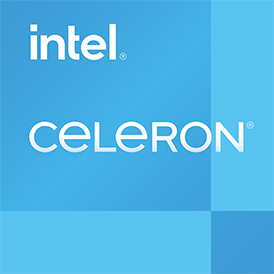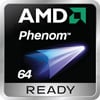
Intel Celeron N3000 Benchmark, Test and specs
Last updated:
The Intel Celeron N3000 has 2 cores with 2 threads and is based on the 8. gen of the Intel Celeron series. The processor uses a mainboard with the BGA 1170 socket and was released in Q1/2015. The Intel Celeron N3000 scores 210 points in the Geekbench 5 single-core benchmark. In the Geekbench 5 multi-core benchmark, the result is 391 points.

| Name: | Intel Celeron N3000 |
|---|---|
| Family: | Intel Celeron (165) |
| CPU group: | Intel Celeron J3000/N3000 (10) |
| Architecture: | Braswell |
| Segment: | Mobile |
| Generation: | 8 |
| Predecessor: | -- |
| Successor: | -- |
CPU Cores and Base Frequency
The Intel Celeron N3000 has 2 CPU cores and can calculate 2 threads in parallel. The clock frequency of the Intel Celeron N3000 is 1.04 GHz (2.08 GHz). The number of CPU cores greatly affects the speed of the processor and is an important performance indicator.
| CPU Cores / Threads: | 2 / 2 |
|---|---|
| Core architecture: | normal |
| Cores: | 2x |
| Hyperthreading / SMT: | No |
|---|---|
| Overclocking: | No |
| Frequency: | 1.04 GHz |
| Turbo Frequency (1 Core): | 2.08 GHz |
| Turbo Frequency (2 Cores): | 2.08 GHz |
Internal Graphics
The Intel Celeron N3000 has integrated graphics, called iGPU for short. Specifically, the Intel Celeron N3000 uses the Intel HD Graphics 400, which has 96 texture shaders and 12 execution units. The iGPU uses the system's main memory as graphics memory and sits on the processor's die.
| GPU name: | Intel HD Graphics 400 |
|---|---|
| GPU frequency: | 0.32 GHz |
| GPU (Turbo): | 0.60 GHz |
| Compute units: | 12 |
| Shader: | 96 |
| Hardware Raytracing: | No |
| Release date: | Q1/2015 |
| Max. displays: | 3 |
|---|---|
| Generation: | 8 |
| Direct X: | 12 |
| Technology: | 14 nm |
| Max. GPU Memory: | 8 GB |
| Frame Generation: | No |
Hardware codec support
A photo or video codec that is accelerated in hardware can greatly accelerate the working speed of a processor and extend the battery life of notebooks or smartphones when playing videos.
| h265 / HEVC (8 bit): | No |
|---|---|
| h265 / HEVC (10 bit): | No |
| h264: | Decode / Encode |
| VP8: | Decode |
| VP9: | No |
| AV1: | No |
|---|---|
| AVC: | Decode / Encode |
| VC-1: | Decode |
| JPEG: | Decode |
Memory & PCIeThe processor can use up to 8 GB memory in 2 (Dual Channel) memory channels. The maximum memory bandwidth is 25.6 GB/s. The memory type as well as the amount of memory can greatly affect the speed of the system. |
|
| Memory type: | Memory bandwidth: |
|---|---|
| DDR3L-1600 | 25.6 GB/s |
| Max. Memory: | 8 GB |
| Memory channels: | 2 (Dual Channel) |
| ECC: | No |
| PCIe: | 2.0 x 4 |
| PCIe Bandwidth: | 2.0 GB/s |
Thermal ManagementThe thermal design power (TDP for short) of the processor is 4 W. The TDP specifies the necessary cooling solution that is required to cool the processor sufficiently. The TDP usually gives a rough idea of the actual power consumption of the CPU. |
|
|---|---|
| TDP (PL1 / PBP): | 4 W |
| TDP (PL2): | -- |
| TDP up: | -- |
| TDP down: | 3 W |
| Tjunction max.: | 90 °C |
Technical details
The Intel Celeron N3000 is made in 14 nm. The smaller the manufacturing process of a CPU, the more modern and energy-efficient it is. Overall, the processor has 2.00 MB cache. A large cache can greatly speed up the processor's speed in some cases such as games.
| Technology: | 14 nm |
|---|---|
| Chip design: | Monolithic |
| Socket: | BGA 1170 |
| L2-Cache: | -- |
| L3-Cache: | 2.00 MB |
| AES-NI: | Yes |
| Operating systems: | Windows 10, Linux |
| Virtualization: | VT-x, VT-x EPT |
|---|---|
| Instruction set (ISA): | x86-64 (64 bit) |
| ISA extensions: | SSE4.1, SSE4.2 |
| Release date: | Q1/2015 |
| Release price: | -- |
| Part Number: | -- |
| Documents: | Technical data sheet |
Rate this processor
Benchmark results

The benchmark results for the Intel Celeron N3000 have been carefully checked by us. We only publish benchmark results that have been created by us or that have been submitted by a visitor and then checked by a team member. All results are based on and fullfill our benchmark guidelines.
Geekbench 5, 64bit (Single-Core)
Geekbench 5 is a cross plattform benchmark that heavily uses the systems memory. A fast memory will push the result a lot. The single-core test only uses one CPU core, the amount of cores or hyperthreading ability doesn't count.

|
Intel Celeron N2807
2C 2T @ 2.16 GHz |
||

|
Intel Celeron N2930
4C 4T @ 2.16 GHz |
||

|
AMD GX-217GA
2C 2T @ 1.65 GHz |
||
|
|
Intel Celeron N3000
2C 2T @ 2.08 GHz |
||

|
Intel Pentium T2310
2C 2T @ 1.46 GHz |
||

|
AMD Phenom X4 9600
4C 4T @ 2.30 GHz |
||

|
Intel Atom Z3736F
4C 4T @ 2.16 GHz |
||
Geekbench 5, 64bit (Multi-Core)
Geekbench 5 is a cross plattform benchmark that heavily uses the systems memory. A fast memory will push the result a lot. The multi-core test involves all CPU cores and taks a big advantage of hyperthreading.

|
Samsung Exynos 7580
8C 8T @ 1.60 GHz |
||

|
AMD GX-217GA
2C 2T @ 1.65 GHz |
||

|
Qualcomm Snapdragon 425
4C 4T @ 1.40 GHz |
||
|
|
Intel Celeron N3000
2C 2T @ 2.08 GHz |
||

|
Intel Pentium E2140
2C 2T @ 1.60 GHz |
||

|
MediaTek MT6735
4C 4T @ 1.30 GHz |
||

|
Intel Celeron 1019Y
2C 2T @ 1.00 GHz |
||
Geekbench 6 (Single-Core)
Geekbench 6 is a benchmark for modern computers, notebooks and smartphones. What is new is an optimized utilization of newer CPU architectures, e.g. based on the big.LITTLE concept and combining CPU cores of different sizes. The single-core benchmark only evaluates the performance of the fastest CPU core, the number of CPU cores in a processor is irrelevant here.

|
Qualcomm Snapdragon 450
8C 8T @ 1.80 GHz |
||

|
Intel Celeron N2920
4C 4T @ 2.00 GHz |
||

|
MediaTek Helio P22
8C 8T @ 2.00 GHz |
||
|
|
Intel Celeron N3000
2C 2T @ 2.08 GHz |
||

|
AMD Sempron 2650
2C 2T @ 1.45 GHz |
||

|
Intel Celeron J1850
4C 4T @ 2.00 GHz |
||

|
AMD Sempron 3850
4C 4T @ 1.30 GHz |
||
Geekbench 6 (Multi-Core)
Geekbench 6 is a benchmark for modern computers, notebooks and smartphones. What is new is an optimized utilization of newer CPU architectures, e.g. based on the big.LITTLE concept and combining CPU cores of different sizes. The multi-core benchmark evaluates the performance of all of the processor's CPU cores. Virtual thread improvements such as AMD SMT or Intel's Hyper-Threading have a positive impact on the benchmark result.

|
Intel Atom Z3745D
4C 4T @ 1.33 GHz |
||

|
Intel Atom Z3740
4C 4T @ 1.33 GHz |
||

|
Intel Celeron N2807
2C 2T @ 2.16 GHz |
||
|
|
Intel Celeron N3000
2C 2T @ 2.08 GHz |
||

|
AMD Sempron 2650
2C 2T @ 1.45 GHz |
||

|
AMD GX-212JC
2C 2T @ 1.20 GHz |
||

|
Apple A5
2C 2T @ 1.00 GHz |
||
iGPU - FP32 Performance (Single-precision GFLOPS)
The theoretical computing performance of the internal graphics unit of the processor with simple accuracy (32 bit) in GFLOPS. GFLOPS indicates how many billion floating point operations the iGPU can perform per second.

|
AMD A4-5000
AMD Radeon HD 8330 @ 0.50 GHz |
||

|
AMD A4-5050
AMD Radeon HD 8330 @ 0.50 GHz |
||

|
AMD A4-5100
AMD Radeon HD 8330 @ 0.50 GHz |
||
|
|
Intel Celeron N3000
Intel HD Graphics 400 @ 0.60 GHz |
||

|
Intel Celeron N3010
Intel HD Graphics 400 @ 0.60 GHz |
||

|
Intel Celeron N3060
Intel HD Graphics 400 @ 0.60 GHz |
||

|
Intel Atom x5-Z8550
Intel HD Graphics 400 @ 0.60 GHz |
||
Estimated results for PassMark CPU Mark
Some of the CPUs listed below have been benchmarked by CPU-monkey. However the majority of CPUs have not been tested and the results have been estimated by a CPU-monkey’s secret proprietary formula. As such they do not accurately reflect the actual Passmark CPU mark values and are not endorsed by PassMark Software Pty Ltd.

|
Intel Pentium 957
2C 2T @ 1.20 GHz |
||

|
Intel Pentium T2410
2C 2T @ 2.00 GHz |
||

|
Intel Atom Z3740D
4C 4T @ 1.33 GHz |
||
|
|
Intel Celeron N3000
2C 2T @ 2.08 GHz |
||

|
MediaTek MT8173
4C 4T @ 1.80 GHz |
||

|
Intel Pentium T2390
2C 2T @ 1.86 GHz |
||

|
Intel Celeron J1750
2C 2T @ 2.41 GHz |
||
Cinebench R15 (Single-Core)
Cinebench R15 is the successor of Cinebench 11.5 and is also based on the Cinema 4 Suite. Cinema 4 is a worldwide used software to create 3D forms. The single-core test only uses one CPU core, the amount of cores or hyperthreading ability doesn't count.

|
Intel Celeron N2820
2C 2T @ 2.39 GHz |
||

|
Intel Celeron N2808
2C 2T @ 2.25 GHz |
||

|
Intel Celeron N3050
2C 2T @ 2.16 GHz |
||
|
|
Intel Celeron N3000
2C 2T @ 2.08 GHz |
||

|
Intel Celeron N3150
4C 4T @ 2.08 GHz |
||

|
Intel Celeron N2807
2C 2T @ 2.16 GHz |
||

|
Intel Pentium D 915
2C 2T @ 2.80 GHz |
||
Cinebench R15 (Multi-Core)
Cinebench R15 is the successor of Cinebench 11.5 and is also based on the Cinema 4 Suite. Cinema 4 is a worldwide used software to create 3D forms. The multi-core test involves all CPU cores and taks a big advantage of hyperthreading.

|
Intel Celeron N2807
2C 2T @ 2.16 GHz |
||

|
Intel Celeron N3050
2C 2T @ 2.16 GHz |
||

|
Intel Celeron N2815
2C 2T @ 2.13 GHz |
||
|
|
Intel Celeron N3000
2C 2T @ 2.08 GHz |
||

|
Intel Pentium D 915
2C 2T @ 2.80 GHz |
||

|
Intel Celeron N2806
2C 2T @ 2.00 GHz |
||

|
Intel Celeron N2810
2C 2T @ 2.00 GHz |
||
Benchmarks

Geekbench 5 (SC)
2,488 entries
2,488 entries

Geekbench 5 (MC)
2,461 entries
2,461 entries

Geekbench 6 (SC)
1,755 entries
1,755 entries

Geekbench 6 (MC)
1,703 entries
1,703 entries

FP32 SP (iGPU)
2,039 entries
2,039 entries

PassMark CPU-Mark
2,392 entries
2,392 entries

Cinebench R15 (SC)
1,106 entries
1,106 entries

Cinebench R15 (MC)
1,101 entries
1,101 entries

Geekbench 3 (SC)
942 entries
942 entries

Geekbench 3 (MC)
938 entries
938 entries

Cinebench R11.5 (SC)
825 entries
825 entries

Cinebench R11.5 (MC)
836 entries
836 entries

Cinebench R11.5 iGPU
383 entries
383 entries
Popular comparisons
back to index





